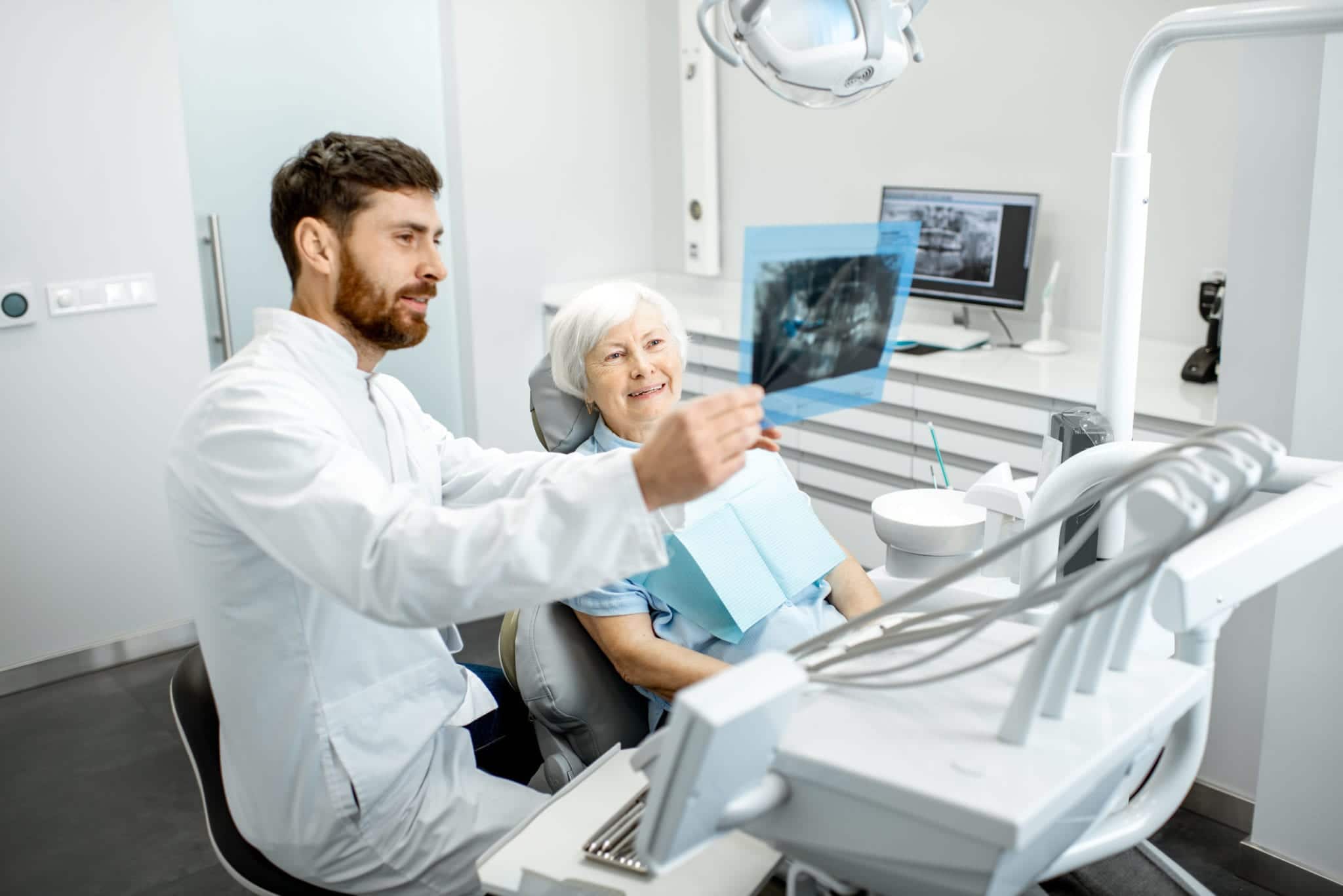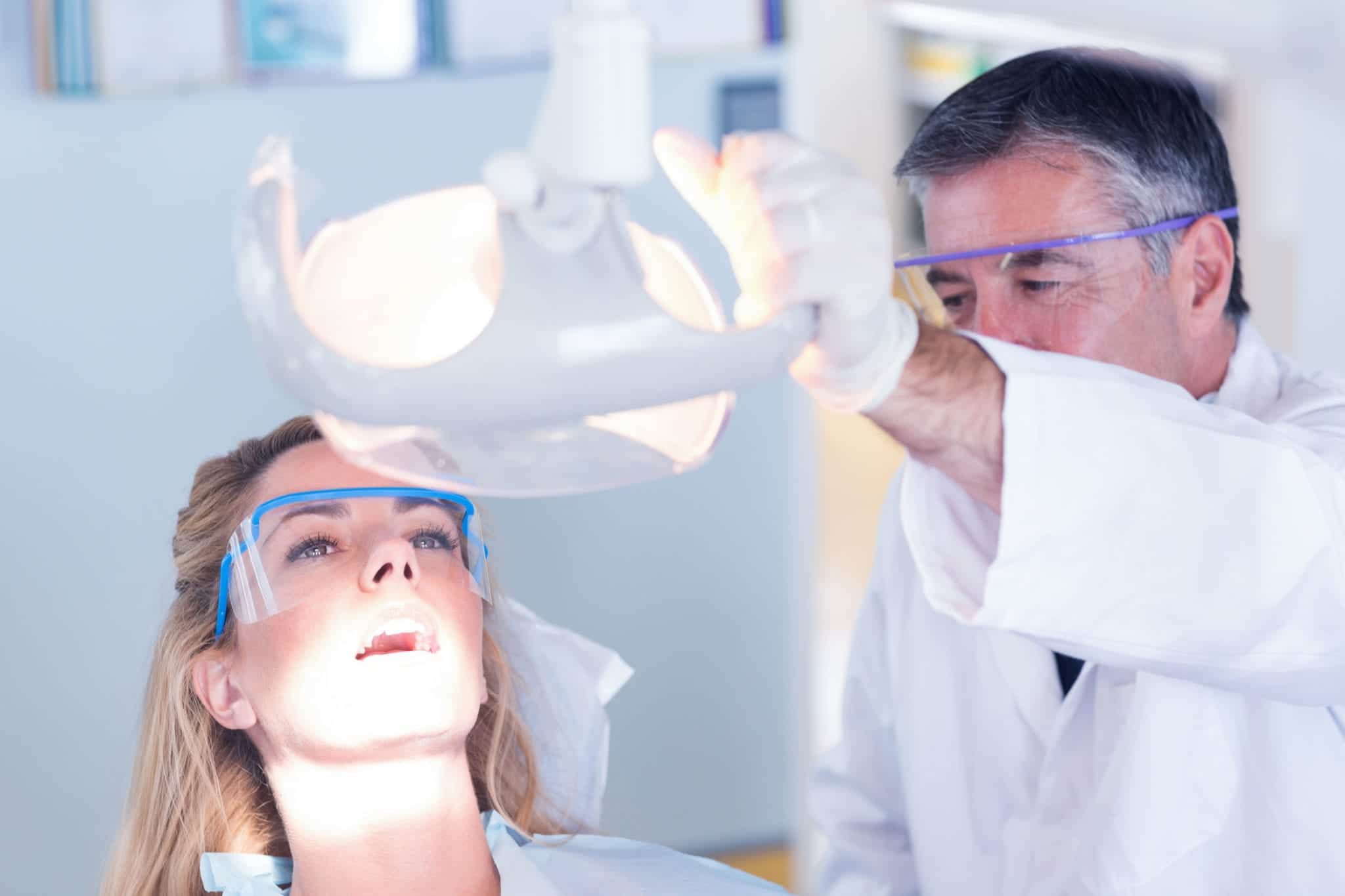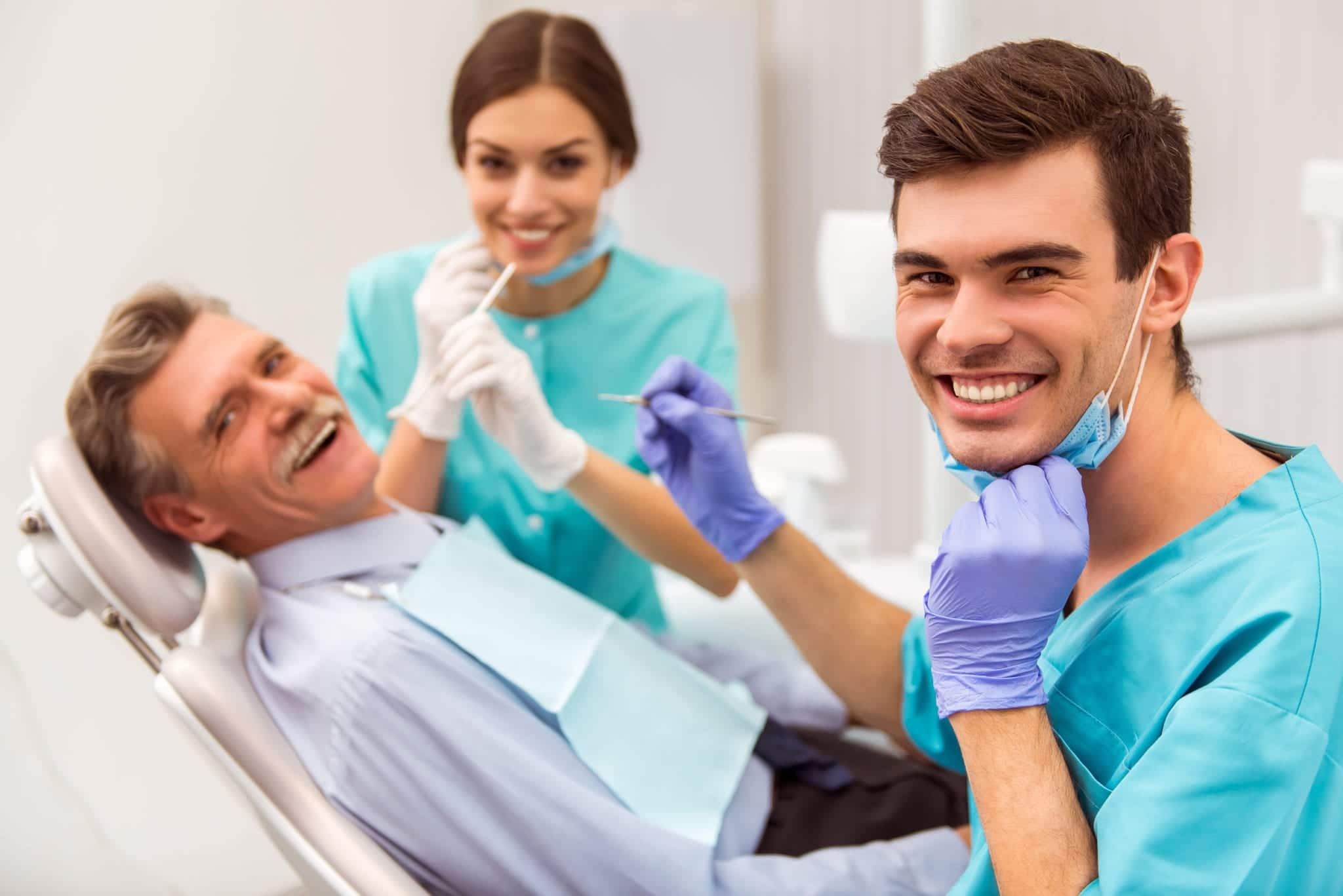
Every hour, someone in America dies from oral cancer. That’s over 9,500 deaths in one year from just one type of cancer. In 2020, 50,000 more will be diagnosed.
These numbers are rising, and experts aren’t sure why. They do know that oral cancer affects everyone: men and women, young and old, healthy and unhealthy. While there are ways to prevent oral cancer, the best action you can take is to go in for a screening.
Luckily, you don’t have to go into a hospital to get checked out for oral cancer. Your dentist can do an oral cancer screening during a routine examination. If your dentist can spot symptoms early, you will have a greater chance of surviving.
What Dentists Are Looking for During an Oral Cancer Screening
Your dentist may ask you questions about your family history and lifestyle in order to assess your risk for oral cancer. The following put you at a higher risk than average of developing oral or oropharyngeal cancer:
- Smoking or excessive use of tobacco products
- Excessive drinking
- Family history of oral cancer
- A previous oral cancer diagnosis
- Significant exposure to the sun
- Diet without fruits or vegetables
- HPV diagnosis
Men are more likely than women to get oral cancer, but this does not mean women are safe from developing the disease.
Signs of Oral Cancer
You may not be aware that signs of oral cancer may appear either inside or outside of your mouth. Any of the following signs of oral cancer can appear around the face, neck, lips, or throat area:
- Asymmetries
- Unusual swelling or patches of color
- Ulcerations or lesions
- Nodules, masses, or unusual bumps
- Unexplained bleeding or numbness
- Unexplained pain or difficulty swallowing
On the inside, while some oral cancer symptoms may cause pain around the throat and jaw, others may go unnoticed for months until a dentist thoroughly screens for them.
This is why it’s important to see your dentist at least twice a year – the sooner these symptoms are spotted, the sooner they can be removed.
How Dentists Screen for Oral Cancer

As oral cancer continues to affect tens of thousands of Americans, scientists are finding new ways to spot the disease earlier. New forms of testing are starting to pop up in dentist offices around the country. Your dentist may use any of the following testing methods to perform your cancer screening.
Screening Dye
One way to identify abnormal cells is to dye them with a special screening dye. Your dentist will ask you to gargle and spit out a dye that turns abnormal cells blue. If blue cells appear in your mouth, the dentist will take a closer look and possibly send you to get further testing.
Screening Light
A special screening light may also help dentists identify abnormal tissue. Your dentist will shine the light in your mouth and look for any bright white cells. This is a possible sign of oral cancer.
Routine Examinations
Your dentist may screen for oral cancer without telling you. Dentists routinely examine the mouth for unusual sores, swelling, or any other signs of oral cancer. This typically happens during a patient’s biannual check-up. Unless something pops up, dentists don’t always mention oral cancer or that they are looking for signs of it. Patients tend to be nervous enough while they’re in the dentist’s chair!
If your dentist spots something unusual, they may ask you to come back for another visit within one or two weeks. During that time, the unusual cells may disappear or heal on their own. If symptoms persist, you may be sent to get additional testing on the cells.
How to Prevent Oral Cancer
Oral cancer prevention is fairly straightforward and easy. Many of the steps you can take to prevent oral cancer are probably already a part of your routine:
- Quit smoking or using tobacco products. Even using smokeless tobacco products can dramatically increase your risk of developing oral cancer, lung cancer, and cancer throughout the entire body.
- Reduce alcohol use. Heavy drinking can also increase your risk of developing cancer throughout the body. The CDC considers an average of two drinks per day (for men) or one drink per day (for women) to be “heavy drinking.”
- Use sunscreen. Sun exposure doesn’t just cause skin cancer. You may also develop lip cancer from spending too much time with UV rays. Apply sunscreen whenever you plan on spending time outside, even in the winter.
- Schedule regular check-ups with healthcare professionals. Dentists, doctors, and other healthcare professionals are on the lookout for cancer symptoms. Talk to your dentist about the risk of oral cancer and what you can do to maintain a healthy diet and lifestyle.

It’s worth mentioning one last time here — the most important prevention measure you can take is to continue visiting your dentist for routine cleanings and exams.
Regular cancer screenings can help cancer from spreading to other parts of the body. (You may be able to prevent other types of cancer too!)






